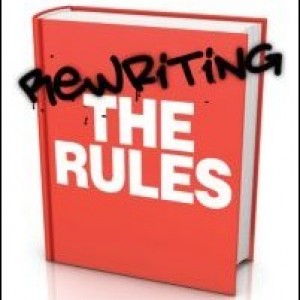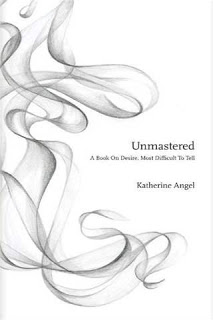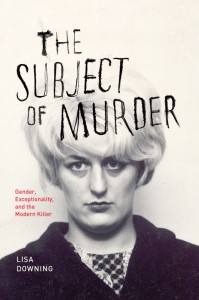A review of Meg Barker, Rewriting the Rules: An Integrative Guide to Love, Sex and Relationships (Routledge, 2012), Katherine Angel, Unmastered: A Book on Desire, Most Difficult to Tell (Allen Lane, 2012), and their critical receptions.
September 2012 saw the publication of two non-academic books authored by writers from within the academy. While generically very different, both shared the aim of bringing critical scrutiny to bear on specific aspects of sexuality. Also, both attempted to expound a broadly sex-critical perspective to a mainstream readership perhaps unfamiliar with the language and tools used in academia and in subcultural sexual communities to define and question sexual practices, identities, and relationships.
 Social psychologist and sex therapist Meg Barker’s Rewriting the Rules describes itself as an “anti-self-help book”. It challenges the commonly perceived need for any strict rules to govern the ways in which we have (sexual) relationships, whether these issue from the heteronormative mainstream — obsessed as it is with marriage, the market, and monogamy — or from the codas of alternative subcultures such as queer, polyamory, and BDSM/ kink cultures. Written in a friendly, nonjudgmental, often lightly humorous style, it gently encourages the reader to rethink quite radically the ways in which s/he understands and conceptualizes romantic/ sexual relationships. In a particularly brilliant passage, Barker uses her experience of place and time to suggest analogously a different way of thinking about the value of maintaining constancy within relationships, and thereby to question the universal value of monogamy and life-time commitment:
Social psychologist and sex therapist Meg Barker’s Rewriting the Rules describes itself as an “anti-self-help book”. It challenges the commonly perceived need for any strict rules to govern the ways in which we have (sexual) relationships, whether these issue from the heteronormative mainstream — obsessed as it is with marriage, the market, and monogamy — or from the codas of alternative subcultures such as queer, polyamory, and BDSM/ kink cultures. Written in a friendly, nonjudgmental, often lightly humorous style, it gently encourages the reader to rethink quite radically the ways in which s/he understands and conceptualizes romantic/ sexual relationships. In a particularly brilliant passage, Barker uses her experience of place and time to suggest analogously a different way of thinking about the value of maintaining constancy within relationships, and thereby to question the universal value of monogamy and life-time commitment:
I think about my own relationship with cities. When I moved out of London, for example, I found that London and I were much better together when we were in a long-distance relationship than when we rubbed up against each other every day. Consider times of day: I used to have a relationship with the time between midnight and two in the morning: a loose, rumpled time of fuzzy edges, drunken camaraderie with strangers and greasy gutters. We broke up and I hardly ever see that time any more, but I do have a new relationship with the time between six and seven a.m.: it is a sharp, silvery grey, raw and empty time, but I am growing to love it. (pp. 110-111)
Such passages are genuinely subversive in their at once light and suggestive, yet ideologically devastating, destabilization of the dogmas by which so many live — and suffer.
 Unmastered, by Katherine Angel, who is a researcher in the History of Medicine at Warwick University, is a literary memoir that attempts to describe the tensions, paradoxes and pain faced by the first-person narrator who struggles to reconcile the embodied experience of heterosexual desire with feminist consciousness in a patriarchal culture. Mixing first-person anecdotes, some of them extremely intimate, with insights from feminist luminaries and critical theorists, Angel’s text goes beyond simple confessional discourse and contributes to a longstanding, polyvocal meditation about the place of desire, the body, and hunger in female lives:
Unmastered, by Katherine Angel, who is a researcher in the History of Medicine at Warwick University, is a literary memoir that attempts to describe the tensions, paradoxes and pain faced by the first-person narrator who struggles to reconcile the embodied experience of heterosexual desire with feminist consciousness in a patriarchal culture. Mixing first-person anecdotes, some of them extremely intimate, with insights from feminist luminaries and critical theorists, Angel’s text goes beyond simple confessional discourse and contributes to a longstanding, polyvocal meditation about the place of desire, the body, and hunger in female lives:
When I was a teenager, when I was small, and feeling desire — an amorphous lust, targeted at no one particular thing, and perhaps in fact targeted at myself — I wondered: where were the hungry women? (p. 120)
Angel’s closest interlocutors in this “wondering” are not, in fact, the Anglo-American feminists she cites liberally, but French writers such as Simone de Beauvoir, Annie Ernaux, Marguerite Duras, and Hélène Cixous. All of these writers foreground the female heterosexual experience in patriarchy and the perceived power and punishments of female embodiment and “hunger”. (Like Angel, de Beauvoir wrote of the experience of abortion, and Ernaux of the tension between overwhelming physical love for a man and ideals of independent womanhood.) And, in the case of Ernaux, Duras and Cixous, there is also a shared predilection for experimental prose form. The blank sheets peppered only with one or two words that characterize Angel’s text (“Fuck me. Yes fuck me!” gets its own page; as does “I am so fucking hungry!”; as does “Am I pornography?”) were an innovation of exponents of both écriture féminine and the modernist nouveau roman.
I’m interested in the nature of the critical response these books have received almost as much as I am interested in the books themselves. Critical response can be seen as something of a litmus test, not always of the quality of the works under review, but rather of the extent to which a given book and its author conform to or flout conventional expectations — both generic and gendered. In looking at reviews of the two books, I have been especially interested in how reviewers respond to these two female academics writing in generic modes that are not strictly their professional “territory”.
In the case of Barker’s book, her academic credentials are generally perceived as reinforcing the value of her contribution to (or, more properly, contestation of) the self-help genre. Michael Gratzke (himself an academic) writes in one of the first published reviews of Rewriting the Rules:
The author is indeed “a therapist specialising in sexual and relationship therapy”. (She is also a senior lecturer in Psychology at the Open University). The book comes – therefore – with excellent credentials. No online doctorates here. The author is a bona fide expert in her field, not a jumped up journo dabbling with people’s feelings whilst making a quick buck.
While it is no doubt the case that Barker’s sound knowledge of psychological and sociological relationship research enables her to distil complex theory and findings in an extremely reader-friendly way, the reviewer appeals to a model of authority that is quite out of keeping with Barker’s authorial voice, which deliberately and strategically undermines the value of those authority discourses that tell people how to order and organize self, sexuality, companionship, and desire. That even positive reviews of Rewriting the Rules seem unwilling to embrace this anarchic principle with regard to the role of authorship and authority is a testimony to the truly innovative nature of the project Barker is undertaking.
Angel’s roots in the academy, on the other hand, have been held against her by some critics who seem to feel that an academic has no business straying into literary writing. Talitha Stevenson, writing in The Guardian, opines:
Academics aren’t usually expected to apply themselves fanatically to writing well, but Angel, who is a postdoctoral fellow in the history of medicine at Warwick University, is not writing as an academic. As the climax to an anecdote “it was an afterthought. It wasn’t the main act. Or even an act at all,” employs the cheap adrenal thumps of advertising copy, or of Raymond Carver when he’d had too much to drink. And “Am I pornography?” is not an aphorism, even if it is printed on its own on a page. For ars this brevis, vita is not long enough.
The sneering contempt of the tone of this review suggests irresistibly the idea that toes are being trodden on, that labels are not being respected. The “rule” is that the literary writer is that professional who may legitimately, authentically, play with language, whereas the academic may only comment upon the “real” writer’s use of language. By juxtaposing Angel’s job title so ostentatiously with negative assessments of her book’s literary merit, Stevenson reveals her hand.
A more sympathetic and well-rounded review of Unmastered penned by Olivia Laing, also appeared in The Guardian. Laing acknowledges Angel’s position within the academy, but gives this a positive spin, hinting at the point I made above regarding the place Angel’s text finds within a broader genealogy of writing about desire:
Angel is an academic at Warwick University, a researcher in the history of female sexual problems. As such, her investigations […] occur within what is emphatically a larger conversation. She uses pared-down, poetic fragments from a multitude of fellow explorers – among them Woolf, Sontag, Susie Orbach, Havelock Ellis and Michel Foucault – as a way of building up a working map of sexual desire.
However, Laing expresses a single reservation about the book that I must admit I share:
Angel’s assumptions about sexuality tend toward the heteronormative and can on occasion feel a touch coercive. A statement like: ‘I was weaned on this – the hypostatised, brutal man; the yielding, deferring woman. So, by the way, were you’ might be true in terms of the dominant culture but elides entirely the subtle shadings of sexual difference. This is particularly odd when so few of the writers she draws upon […] can be categorised as entirely heterosexual.
I can imagine that many readers will find Unmastered’s overwhelming focus on white, middle-class, heterosexual, genital-focused desire and identity alienating — and these are precisely the charges that are often brought against Angel’s unacknowledged Francophone foremothers too. While I have no problem with a heterosexual female writer narrating the story of her desire, it is unquestionably significant in the context of examining the normativity of editorial decisions and publishing policy that it is this narrative of female desire, rather than a queer or otherwise non-normative one, that was chosen to be published and promoted by a major, mainstream literary publisher.
For myself, I found Unmastered most relatable and insightful when it dwelt not on the pleasures and problems of vaginal penetration, M-f bondage, or abortion — I have read of those before — but rather on the relationships of power, pleasure, and disavowal at work in professional life. Angel’s description of the jarring experience of sitting in academic seminars about pornography and being expected to reach easy answers about whether pornography is “good” or “bad”/ “educational” or “destructive”; and, moreover, being expected to divorce the emotional, physical, desiring self from the intellectual, cerebral subject of the academy is, for me, the book’s high point. This is a section in which something is beautifully expressed that I had undoubtedly experienced, but had never read nor heard articulated clearly before.
Both books provoked a great deal of reflection in me. I read Unmastered in September, and Rewriting the Rules in early October, and I have been mulling them over ever since, noticing the relevance of their insights to various current discussions and issues, and observing with interest their critical reception. In different ways, both Angel and Barker cross the threshold of the academy to spread the sex-critical word and, in so doing, they invite us to reflect not only upon the questions about sexuality and relationships that their books explicitly raise, but also on the multiple and overlapping roles of academic, author, and desiring self — roles that seem, in their interstices, to provoke consternation about the nature of epistemological authority and authenticity.
***
Meg Barker’s blog, in which she continues the work begun in Rewriting the Rules can be found here.
Katherine Angel’s author website can be found here.
 Social psychologist and sex therapist Meg Barker’s Rewriting the Rules describes itself as an “anti-self-help book”. It challenges the commonly perceived need for any strict rules to govern the ways in which we have (sexual) relationships, whether these issue from the heteronormative mainstream — obsessed as it is with marriage, the market, and monogamy — or from the codas of alternative subcultures such as queer, polyamory, and BDSM/ kink cultures. Written in a friendly, nonjudgmental, often lightly humorous style, it gently encourages the reader to rethink quite radically the ways in which s/he understands and conceptualizes romantic/ sexual relationships. In a particularly brilliant passage, Barker uses her experience of place and time to suggest analogously a different way of thinking about the value of maintaining constancy within relationships, and thereby to question the universal value of monogamy and life-time commitment:
Social psychologist and sex therapist Meg Barker’s Rewriting the Rules describes itself as an “anti-self-help book”. It challenges the commonly perceived need for any strict rules to govern the ways in which we have (sexual) relationships, whether these issue from the heteronormative mainstream — obsessed as it is with marriage, the market, and monogamy — or from the codas of alternative subcultures such as queer, polyamory, and BDSM/ kink cultures. Written in a friendly, nonjudgmental, often lightly humorous style, it gently encourages the reader to rethink quite radically the ways in which s/he understands and conceptualizes romantic/ sexual relationships. In a particularly brilliant passage, Barker uses her experience of place and time to suggest analogously a different way of thinking about the value of maintaining constancy within relationships, and thereby to question the universal value of monogamy and life-time commitment: Unmastered, by Katherine Angel, who is a researcher in the History of Medicine at Warwick University, is a literary memoir that attempts to describe the tensions, paradoxes and pain faced by the first-person narrator who struggles to reconcile the embodied experience of heterosexual desire with feminist consciousness in a patriarchal culture. Mixing first-person anecdotes, some of them extremely intimate, with insights from feminist luminaries and critical theorists, Angel’s text goes beyond simple confessional discourse and contributes to a longstanding, polyvocal meditation about the place of desire, the body, and hunger in female lives:
Unmastered, by Katherine Angel, who is a researcher in the History of Medicine at Warwick University, is a literary memoir that attempts to describe the tensions, paradoxes and pain faced by the first-person narrator who struggles to reconcile the embodied experience of heterosexual desire with feminist consciousness in a patriarchal culture. Mixing first-person anecdotes, some of them extremely intimate, with insights from feminist luminaries and critical theorists, Angel’s text goes beyond simple confessional discourse and contributes to a longstanding, polyvocal meditation about the place of desire, the body, and hunger in female lives: My book, The Subject of Murder: Gender, Exceptionality, and the Modern Killer, which took me six years to write, and which has been in production for over 12 months with Chicago University Press, is finally available for pre-order, though it won’t be in the world until next year. It is a relative snip at $25 / £15.
My book, The Subject of Murder: Gender, Exceptionality, and the Modern Killer, which took me six years to write, and which has been in production for over 12 months with Chicago University Press, is finally available for pre-order, though it won’t be in the world until next year. It is a relative snip at $25 / £15. Shulamith Firestone, radical feminist writer, died on 28th August 2012, aged 67. She is best known as the author of the groundbreaking polemic,
Shulamith Firestone, radical feminist writer, died on 28th August 2012, aged 67. She is best known as the author of the groundbreaking polemic,